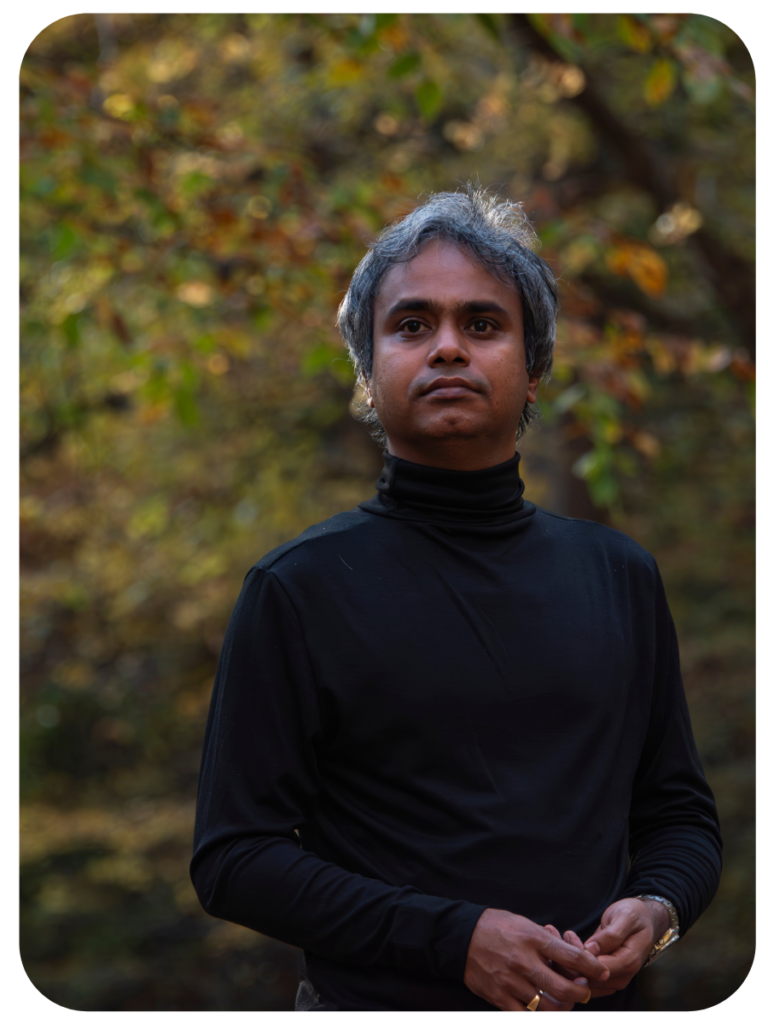Dr. Nakul Padalkar, Assistant Teaching Professor

Who had the most significant influence on your education and/or career path?
It’s challenging to attribute my educational journey to just one individual. I was fortunate to grow up in a deeply academic environment, surrounded by my maternal and paternal grandparents. The unwavering commitment of all four of my grandparents to education profoundly inspired me. Their meticulous preparation for lectures and dedication to classroom organization had a strong influence on my initial approach to teaching. My current teaching style, which focuses on addressing students’ individual needs, was built upon these early role models. Additionally, witnessing my father’s determination to pursue his doctoral education impacted my perspective toward academic rigor and perseverance significantly.
Yet, through all these experiences, the constant pillar of support has been my wife, Taru. Her role as my staunchest supporter and enthusiastic cheerleader has been instrumental in my journey, making her the most significant influence in my career.
What drew you to machine learning and blockchain?
My journey into machine learning and blockchain technologies has been driven by a deep-rooted fascination with automation and a commitment to understanding and shaping the ethical landscape of these disruptive innovations. From the outset of my career, I was captivated by the intricacies of machine vision in industrial applications. My initial explorations, involving hours of delving into literature and constructing Arduino and Raspberry Pi prototypes, laid the foundation for my enduring passion.
My tenure at Koenig Und Bauer further deepened my expertise, immersing me in the complexities of security and currency printing. While my role did not directly involve designing these sophisticated machines, it gave me a robust technical understanding of security printing processes. This experience naturally led me to explore the then-nascent world of digital currencies, particularly as Bitcoin began to gain mainstream attention.
This convergence of interests culminated in a profound appreciation for machine learning – a field at the intersection of my technical curiosities and professional experiences.
On a more philosophical level, my engagement with machine learning and blockchain is not merely technological curiosity but a conscientious choice. I am acutely aware that these technologies, inherently neutral, hold immense power to effect both positive and negative changes in society. The ethical and moral dimensions of these technologies captivate me the most. The omnipresent nature of computer vision in citizen surveillance, the potential role of blockchain in shaping digital identities, and the critical implications for minority groups are not just academic concerns for me. They are the driving forces behind my desire to understand and responsibly influence the development and application of these transformative technologies.
What do you enjoy most about your work?
What I find most rewarding about my work is the opportunity to bridge the gap between cutting-edge research and classroom instruction, where I can contribute to shaping the minds that will drive tomorrow’s technological advancements. My passion for machine learning and blockchain technologies isn’t confined to the lab or theoretical studies; it extends into the vibrant, dynamic environment of the classroom. There’s a unique thrill in translating the complexities of these advanced technologies into comprehensive, real-world applications for my students, sparking curiosity and fostering a generation of thinkers to equip them to apply these technologies ethically and innovatively.
What enriches this experience even more is my “one-on-one” interactions with students, particularly during our informal coffee walks. I relish the moments when I can see the concepts click in their minds as they begin to understand not just the ‘how’ but the ‘why’ behind these technologies. It’s incredibly fulfilling to guide them through the nuances of machine learning algorithms or the intricacies of blockchain systems and then witness their growing excitement as they contemplate their potential impact on the world.
What’s the first piece of advice you would give to a DSAN student?
View your time in the program as an investment in your future self. I advise all my students to consciously and diligently manage their time. The journey through a graduate program is as intellectually rewarding as it is challenging, often pushing the boundaries of your cognitive capabilities. It’s crucial to understand that the effectiveness of your study and work efforts can diminish if you are constantly cognitively overwhelmed.
Effective time management is not just about juggling various tasks; it’s about strategically planning your learning process and ensuring that every hour spent studying or working is as productive as possible. Remember, graduate studies are a marathon, not a sprint. It’s about consistent, sustainable progress rather than occasional bursts of overexertion.
The efforts you put in now, the discipline you maintain, and the commitments you fulfill are all steps toward constructing a more knowledgeable, skilled, and capable version of yourself. Think of it as keeping promises to your future self, laying a foundation to support your long-term professional and personal growth.
What would people be surprised to learn about you?
I am extremely goofy, with a quirky sense of humor.
What’s the best advice you’ve ever received?
Not advice, but I try to live by Bhagavad Gita verses 12:13-20. The closest translation to this is Rudiard Kipling’s poem IF.
If you could have one superpower, what would it be and why?
Teleportation, so I don’t have to pay luggage fees.
What three things would you want with you on a deserted island?
My wife (she won’t let me go anywhere without her), multitool or a machete, and a canvas tent.